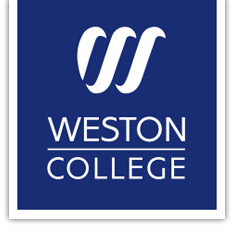
I want to be a
Quantity Surveyor
I want to be a Surveyor
SURVEYOR COURSES FOR 16-19 YEAR OLDS
Quantity surveyors oversee construction projects, managing risks and controlling costs. SALARIES: range from £25,000 to £80,000 a year dependent on experience.
TYPICAL HOURS: 37-40 per week
In your day-to-day tasks you could:
- Find out a client’s needs and assess if the plans are feasible.
- Work out quantities and costs of materials, time and labour for tenders.
- Negotiate contracts and work schedules.
- Advise on legal matters, including risks and disputes.
- Monitor sub-contractors and stages of construction.
- Report on costs and prepare accounts for payment.
- Keep up to date with construction methods and materials.
- Follow health and safety and building regulations.
You could work at a client’s business or in an office. Your working environment may be outdoors some of the time.
WHAT NEXT? Below you will see you have a couple of options. You can apply for the on-campus/full-time course, there is no need to pick a Level (Level 1 or Level 2) as this depends on your grades which will be discussed during enrolment, OR you can apply for an apprenticeship where you will be based in the workplace. Click on the buttons below to find out more ...
CAREER PATH AND PROGRESSION
You could continue with Higher Education at our University Centre Weston (UCW) and study Construction and the Built Environment (Civil Engineering, HNC/HND).
With incorporated or chartered engineer status, you could move into senior project management roles. You could also specialise in a particular engineering field, work in research or become a consultant.
Your qualification could take you internationally to projects in Africa, Asia and America.
You could also work for international development and disaster relief agencies.
WORKING WITH KEY EMPLOYERS
Our Construction Career Excellence Hub is endorsed by leading employers, and they are actively involved throughout your whole training programme.
Here is an example of how employers will be getting involved with your programme:
- They will co-design your training programme to provide you with the skills and knowledge needed for industry
- They will help to create an inspirational learning experience for you
- Provide the skills training required for wider industry
- Provide opportunities to you, through industry placements
- Assist in building your professional identity, through online networking.
PROGRESSION ROUTES
Once you’ve completed your course, there are several options for you to further develop your skills and knowledge...

If you completed a Level 1, or Level 2 course, you can continue to progress to the next level course. Click here to go back to our course page, and discover the relevant course route, for you.
We also offer a Construction T Level programme, which is a mixture of college and work-based learning designed to give you the technical skills and workplace experience to kick-start your construction career.
Technical areas of study could include Surveying, design, civil engineering, planning and emerging technologies such as drone surveying and BIM.
An apprenticeship is a fantastic way of entering the construction industry. Not only will you get the opportunity to get your foot in the door with a local or national company, you will also be able to earn while you learn.
Through apprenticeships you will work closely with an experienced tradesperson to develop and practice your skills, all whist receiving the benefits that being a student brings.
We have several degree options on offer at UCW, which will allow you to further develop your knowledge. UCW is rated as Gold in the Teaching Excellence and Student Outcomes Framework, meaning the teaching, learning and opportunities we provide are of the highest quality in Britain.
There are several degree options available in construction, which could lead you on to a career as an architect, site managers, project managers and surveyors. You can find the full UCW course list, here.

Ben
Design, Surveying & Planning T-level
I wanted to pursue a career in civil engineering, and when I contacted Weston College, they recommended the T Level, which turned out to be the best choice for me.







